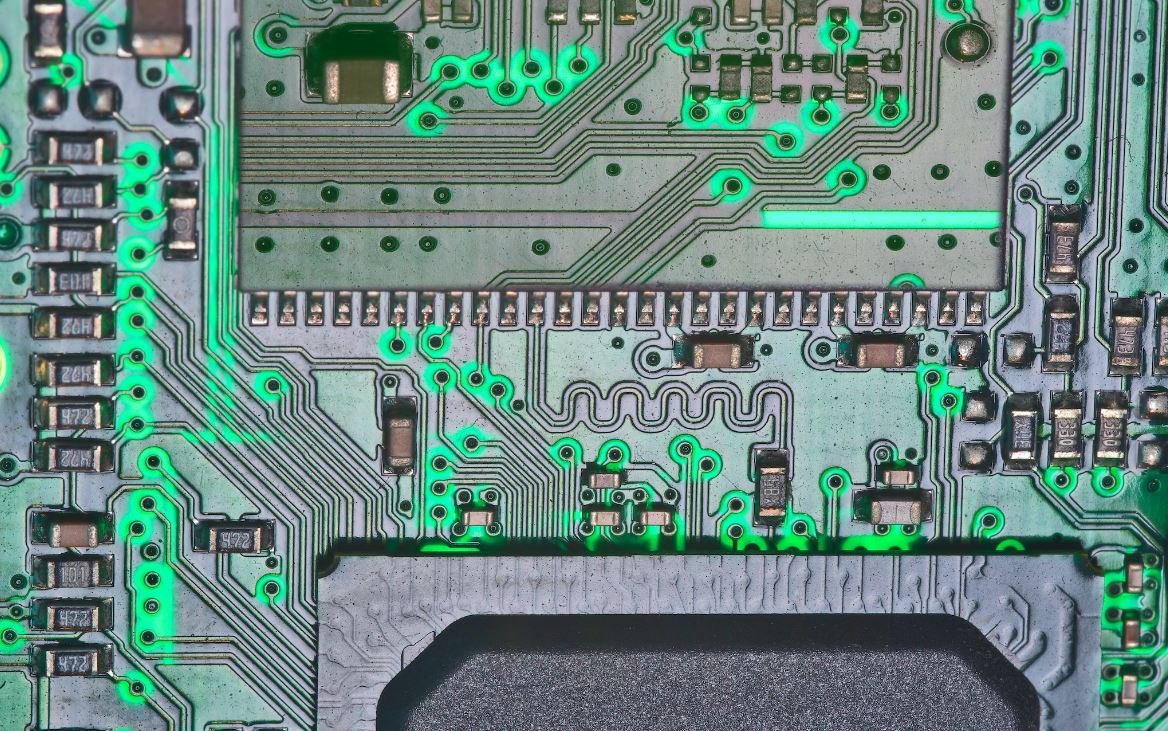Tesla Versus Hybrid
When it comes to choosing an environmentally-friendly and fuel-efficient vehicle, two popular options are Tesla cars and hybrid vehicles. While both types of vehicles have their advantages, understanding the key differences can help you make an informed decision. This article compares Tesla cars and hybrid vehicles in terms of their technology, performance, and environmental impact.
Key Takeaways
- Tesla cars are fully electric vehicles that run solely on electricity.
- Hybrid vehicles combine a traditional gasoline engine with an electric motor.
- Tesla cars offer superior acceleration and smooth performance.
- Hybrid vehicles provide better fuel efficiency for longer distances.
- Tesla cars produce zero tailpipe emissions.
- Hybrid vehicles produce lower emissions compared to traditional gasoline cars.
**Tesla cars** are renowned for their cutting-edge technology and innovation. By utilizing an all-electric powertrain, Tesla vehicles operate purely on electricity, eliminating the need for gasoline. This means no more trips to the gas station and no more carbon emissions from burning fossil fuels. *With their advanced battery technology, Tesla cars offer impressive acceleration and a smooth driving experience.*
**Hybrid vehicles**, on the other hand, combine the benefits of both gasoline engines and electric motors. They can run on either gasoline or electricity, depending on the driving conditions. Hybrid cars use regenerative braking to recharge their electric motors while slowing down or coming to a stop. *This technology helps hybrid vehicles improve fuel efficiency and reduce emissions, making them a greener alternative to traditional gasoline cars.*
Performance Comparison
| Tesla | Hybrid | |
|---|---|---|
| Acceleration | Fast and instant acceleration | Slower acceleration |
| Driving Range | Varies depending on the model, typically between 250-370 miles | Varies depending on the hybrid type, typically between 300-600 miles |
| Charging Time | Longer charging time required, usually several hours | Does not require charging as it has a gasoline engine |
When it comes to **acceleration**, Tesla cars have the advantage. With their electric motors, Teslas offer blistering acceleration due to the instant torque provided by electric power. On the other hand, hybrid vehicles tend to have slower acceleration due to their reliance on a combination of gasoline and electric power.
However, driving range is an essential factor to consider. Tesla cars typically have a driving range of around 250-370 miles on a single charge, depending on the model. In contrast, the driving range of hybrid vehicles varies depending on the battery capacity and the size of the gasoline tank. It is not uncommon for hybrid vehicles to offer driving ranges between 300-600 miles, allowing them to cover longer distances before refueling or recharging.
Environmental Impact
| Tesla | Hybrid | |
|---|---|---|
| Tailpipe Emissions | Zero tailpipe emissions | Lower emissions compared to gasoline cars |
| Carbon Footprint | Depends on the electricity source used for charging* | Lower carbon footprint compared to gasoline cars |
| Resource Consumption | Uses lithium-ion batteries that require mining* | Requires gasoline and electricity for charging* |
In terms of **environmental impact**, Tesla cars produce zero tailpipe emissions as they generate power solely from electricity. This eliminates the release of harmful pollutants and greenhouse gases directly into the environment. On the other hand, hybrid vehicles still emit lower levels of pollutants compared to traditional gasoline cars, but they do produce some tailpipe emissions.
While the carbon footprint of Tesla cars depends on the source of electricity used for charging, they are generally more environmentally friendly compared to hybrid vehicles. Hybrid cars still rely on gasoline and require occasional refueling, which contributes to their overall carbon footprint.
It is important to note that Tesla cars use lithium-ion batteries, which require mining of certain minerals. This mining process does have an impact on the environment. However, advancements are being made to improve the sustainability of battery production and ensure responsible mineral sourcing.
Final Thoughts
Choosing between a Tesla car and a hybrid vehicle ultimately depends on your personal preferences and needs. If you prioritize performance, instant torque, and zero tailpipe emissions, a Tesla car may be the right choice for you. On the other hand, if you frequently take longer trips and value better fuel efficiency, a hybrid vehicle might be a more suitable option. Both options contribute positively to reducing environmental impacts compared to traditional gasoline-powered vehicles.

Common Misconceptions
Misconception 1: Teslas are 100% green and emit no pollutants
One common misconception is that Teslas are completely emissions-free and have no impact on the environment. However, while it is true that Teslas do not emit greenhouse gases during operation, the electricity they use is generated from various sources, some of which may still rely on fossil fuels. This means that Teslas indirectly contribute to emissions based on the energy mix of their charging infrastructure.
- Electricity for Teslas can still come from coal-fired power plants
- Teslas may only be as green as the electricity used to charge them
- The overall environmental impact depends on the source of the electricity
Misconception 2: Hybrid cars are not as efficient as Teslas
Another misconception is that hybrid cars are less efficient compared to Teslas. While it is true that pure electric vehicles like Teslas have higher efficiency due to the direct conversion of electricity to mechanical power, modern hybrid vehicles have significantly improved their fuel efficiency and overall energy usage. Hybrid cars use a combination of an internal combustion engine and an electric motor, leveraging regenerative braking and other technologies to optimize fuel consumption.
- Hybrid vehicles have made significant advancements in fuel efficiency
- Regenerative braking helps capture energy to recharge the battery
- Hybrids offer a better range compared to pure electric vehicles
Misconception 3: Teslas are too expensive to own
Many people believe that Teslas are prohibitively expensive and only accessible to the wealthy. While it is true that Teslas come with a higher upfront cost compared to conventional vehicles or even some hybrid cars, there are various factors to consider. First, the cost of ownership over time can be lower due to savings on fuel and maintenance. Furthermore, government incentives, tax credits, and reduced insurance rates for electric vehicles can offset some of the initial costs.
- Tesla’s higher upfront cost may be balanced by long-term savings
- Government incentives and tax credits can make Teslas more affordable
- Electric vehicles often have lower maintenance costs
Misconception 4: Hybrids are not suitable for long-distance driving
Some people mistakenly believe that hybrid cars are not suitable for long-distance driving and are mostly designed for city commuting. However, modern hybrid vehicles often have sufficient range and fuel efficiency for long journeys. Additionally, hybrid cars can rely on their internal combustion engine when needed, giving them flexibility on longer trips without requiring frequent recharging.
- Hybrids can match or exceed the range of conventional fuel vehicles
- Internal combustion engine provides extra power for long distances
- Hybrids offer enhanced fuel efficiency on both city and highway driving
Misconception 5: Teslas require a lot of time to recharge
One misconception surrounding Teslas is that they require a significant amount of time to fully recharge. While it is true that charging times can vary based on the charger type and the battery level, the availability of superchargers and high-power chargers significantly reduces the time required for charging. With superchargers, Teslas can achieve a range of hundreds of kilometers in just half an hour, making long-distance travel feasible.
- Superchargers enable faster charging for Teslas
- Charging times vary based on different factors
- Quick charging options make Teslas practical for long trips

Tesla Model 3 Specifications
The Tesla Model 3 is a highly popular electric vehicle known for its affordable price and impressive performance. The table below provides an overview of the key specifications of the Tesla Model 3.
| Specification | Value |
|---|---|
| Acceleration (0-60 mph) | 4.4 seconds |
| Range | 263 miles |
| Top Speed | 162 mph |
| Battery Capacity | 54 kWh |
| Supercharging Rate (Peak) | 170 kW |
Toyota Prius Specifications
The Toyota Prius is a popular hybrid vehicle known for its fuel efficiency. The table below presents the specifications of the Toyota Prius, highlighting its distinct features.
| Specification | Value |
|---|---|
| Acceleration (0-60 mph) | 10.5 seconds |
| Range (Gasoline Only) | 630 miles |
| Top Speed | 112 mph |
| Battery Capacity | 1.3 kWh |
| Fuel Efficiency (Combined) | 56 mpg |
Charging Time Comparison
This table provides a comparison of the charging times required for the Tesla Model 3 and the Toyota Prius hybrid.
| Vehicle | Charging Time (0-100%) |
|---|---|
| Tesla Model 3 | 6 hours |
| Toyota Prius | 4 minutes |
Safety Ratings
Safety is paramount in any vehicle. This table compares the safety ratings of the Tesla Model 3 and the Toyota Prius.
| Vehicle | Rating (NHTSA) |
|---|---|
| Tesla Model 3 | 5 stars |
| Toyota Prius | 4 stars |
Pricing
The cost of a vehicle is a crucial factor for many consumers. This table presents a comparison of the starting prices for the Tesla Model 3 and the Toyota Prius.
| Vehicle | Starting Price |
|---|---|
| Tesla Model 3 | $39,990 |
| Toyota Prius | $24,525 |
Environmental Impact
Concern for the environment plays a significant role in the choice between a Tesla Model 3 and a Toyota Prius. This table compares the CO2 emissions and the electricity consumption of these vehicles.
| Vehicle | CO2 Emissions | Electricity Consumption |
|---|---|---|
| Tesla Model 3 | 0 g/mile | 27 kWh/100 miles |
| Toyota Prius | 84 g/mile | N/A |
Infrastructure
The availability and accessibility of charging infrastructure can greatly impact the usability of electric vehicles. This table compares the number of charging stations for the Tesla Model 3 and the number of gasoline stations for the Toyota Prius.
| Vehicle | Charging Stations | Gasoline Stations |
|---|---|---|
| Tesla Model 3 | 20,000+ | N/A |
| Toyota Prius | N/A | 150,000+ |
Resale Value
Vehicle resale value can be an important consideration. This table provides a comparison of the estimated resale values for the Tesla Model 3 and the Toyota Prius.
| Vehicle | Resale Value (%) |
|---|---|
| Tesla Model 3 | 70% |
| Toyota Prius | 50% |
Customer Satisfaction
Customer satisfaction is a testament to the overall experience of vehicle ownership. This table compares the customer satisfaction ratings of the Tesla Model 3 and the Toyota Prius.
| Vehicle | Customer Satisfaction (%) |
|---|---|
| Tesla Model 3 | 94% |
| Toyota Prius | 88% |
Through this comparison of the Tesla Model 3 and the Toyota Prius, it is evident that both options have their unique advantages. The Tesla Model 3 offers greater acceleration, longer range, and higher safety ratings, while the Toyota Prius excels in fuel efficiency and affordability. Moreover, the Tesla Model 3 has no CO2 emissions and relies on an extensive network of charging stations, while the Toyota Prius emits reduced levels of CO2 and benefits from a well-established gasoline refueling infrastructure. Ultimately, buyers must consider their priorities, whether it’s performance, sustainability, or budget-friendliness, in making the optimal choice for their preferences and needs.
Frequently Asked Questions
What is the difference between a Tesla and a hybrid car?
Tesla cars are fully electric vehicles that rely solely on battery power and do not have an internal combustion engine. Hybrid cars, on the other hand, combine an internal combustion engine with an electric motor, allowing them to run on both fossil fuels and electricity.
Which is more environmentally friendly, a Tesla or a hybrid car?
Tesla cars are considered more environmentally friendly as they produce zero emissions while driving since they run entirely on electricity. Hybrid cars, although more fuel-efficient than traditional gasoline-powered vehicles, still emit carbon dioxide and other pollutants when using their internal combustion engines.
Are Tesla cars more expensive than hybrid cars?
In general, Tesla cars tend to be more expensive than hybrid cars. This is partly due to the advanced technology and larger battery packs used in Tesla vehicles. However, the cost of Tesla cars is gradually decreasing as the technology becomes more widespread, making them more accessible to a wider range of consumers.
Which one has a longer driving range, a Tesla or a hybrid car?
Tesla cars typically have a longer driving range compared to hybrid cars. This is because Teslas are designed as electric-only vehicles, allowing them to optimize battery capacity and efficiency. Hybrid cars rely on a combination of gasoline and electric power, which can limit their overall range.
Do Teslas require more maintenance than hybrid cars?
In general, Teslas require less maintenance compared to hybrid cars. Teslas have fewer moving parts since they lack a traditional internal combustion engine, which leads to lower maintenance costs. Hybrid cars, on the other hand, require regular maintenance for both their gasoline engine and electric motor components.
Can a Tesla be charged at home like a hybrid car?
Yes, a Tesla can be charged at home using a specialized home charging unit or a standard electrical outlet. Similar to hybrid cars, Tesla vehicles come with different charging options, including the ability to plug into a standard household outlet or a dedicated charging station. However, it’s important to note that Tesla’s supercharger network provides faster charging options, which is not available for hybrid cars.
What is the acceleration like in a Tesla compared to a hybrid car?
Teslas generally have faster acceleration compared to most hybrid cars. Due to the instant torque provided by electric motors, Tesla cars can accelerate rapidly, providing a thrilling driving experience. Hybrid cars, while offering decent acceleration, usually can’t match the sheer power and acceleration of Tesla vehicles.
Which one has a larger cargo space, a Tesla or a hybrid car?
The cargo space in cars varies depending on the specific model, but generally, hybrid cars tend to have larger cargo spaces compared to Tesla vehicles. This is because hybrid cars are built with more conventional designs, allowing them to allocate more space for cargo. Teslas, being fully electric, often have components like battery packs that can reduce available cargo space.
Can a hybrid car tow more weight than a Tesla?
Most hybrid cars can tow more weight compared to Tesla vehicles. Tesla cars are not designed with towing capabilities in mind, and their towing capacity is limited or nonexistent in most models. Hybrid cars, being equipped with internal combustion engines, can typically handle towing smaller trailers or lightweight loads.
Are there any government incentives for buying a Tesla or a hybrid car?
Both Tesla cars and hybrid cars may qualify for government incentives. The availability and types of incentives, however, vary by country and region, as well as specific models and their energy efficiency ratings. It is recommended to consult local authorities and check for potential incentives when considering the purchase of either a Tesla or a hybrid car.




